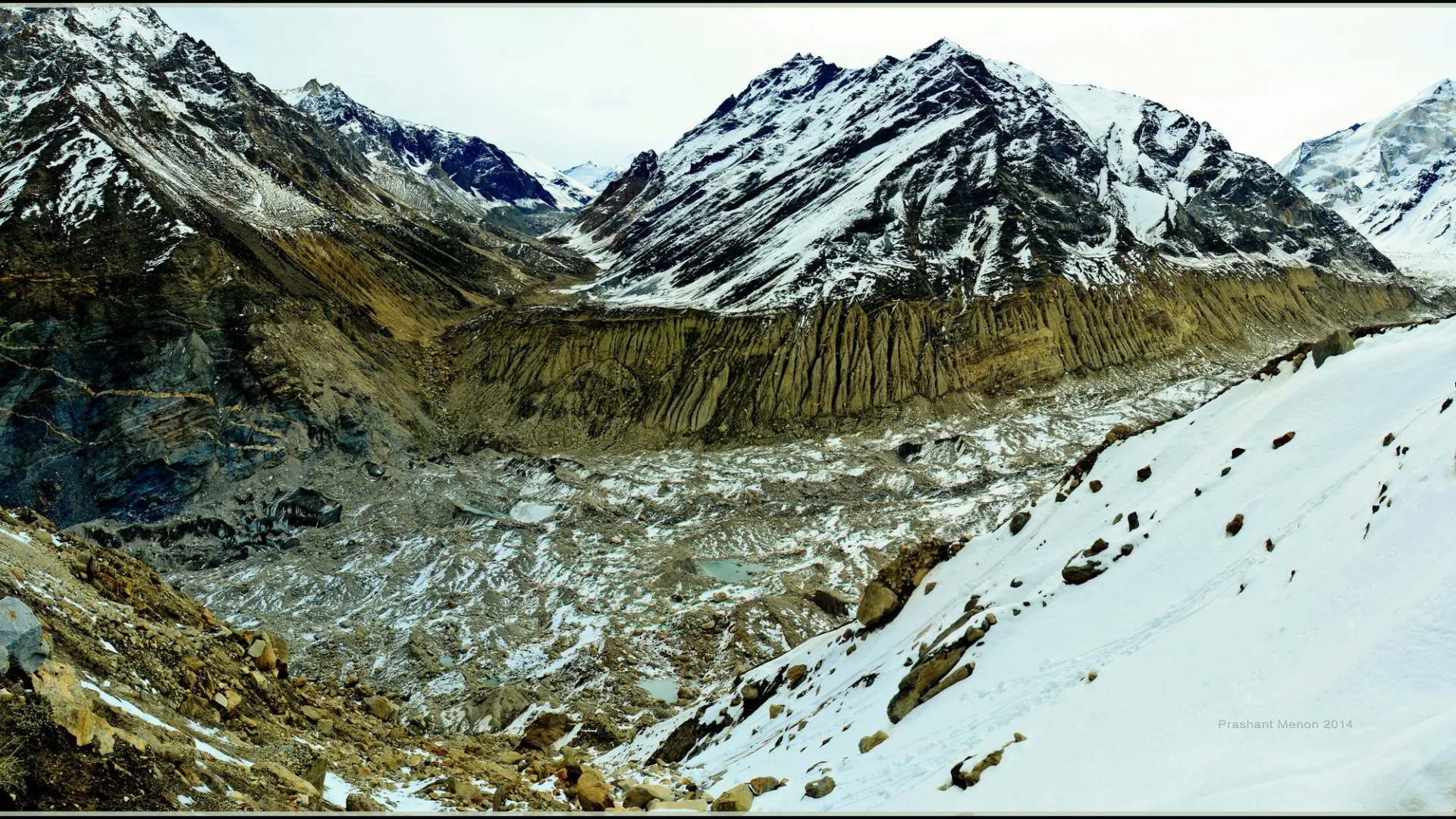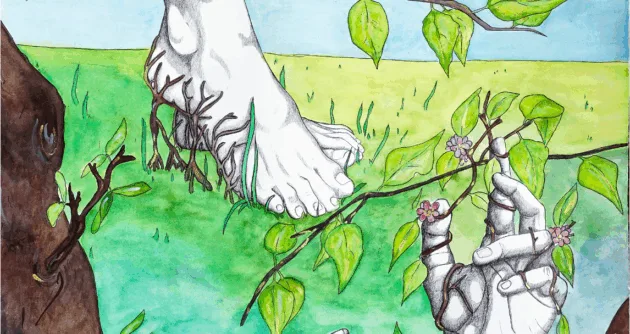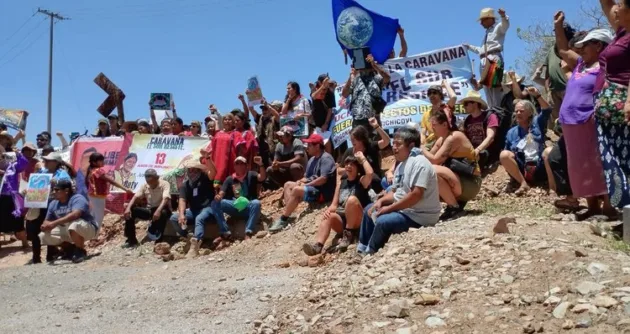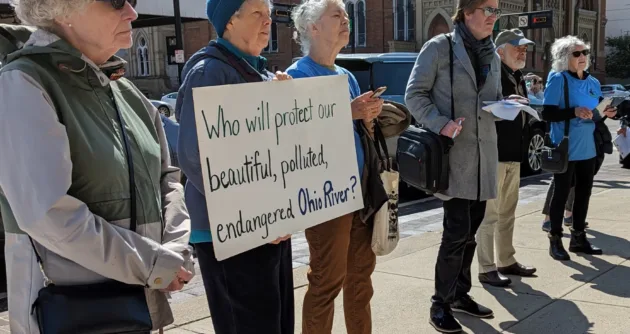An Important Step Forward for the Growing Rights of Nature Movement
Press Statement
Contact:
Stacey Schmader
Administrative Director
Info@celdf.org
717-498-0054
MERCERSBURG, PA, USA: On March 31, the High Court of Uttarakhand at Naintal in northern India issued a ruling declaring that:
…the Glaciers including Gangotri & Yamunotri, rivers, streams, rivulets, lakes, air, meadows, dales, jungles, forests wetlands, grasslands, springs and waterfalls, legal entity/ legal person/juristic person/juridicial person/ moral person/artificial person having the status of a legal person, with all corresponding rights, duties and liabilities of a living person, in order to preserve and conserve them. They are also accorded the rights akin to fundamental rights/ legal rights.
The High Court explained that declaring the ecosystems as legal persons is necessary for their protection, and identified a number of steps that government must take to protect the ecosystems.
This comes following a decision issued on March 20 by the High Court declaring the River Ganga and River Yumana are “legal persons/living persons” – a status the High Court wrote was necessary to address the severe pollution and decimation of the river ecosystems.
The movement to recognize certain legal rights of nature and particular ecosystems is growing. Beginning in 2006, the Community Environmental Legal Defense Fund (CELDF) assisted the first communities in the United States to advance the rights of nature into law. CELDF has now assisted more than three dozen communities across the U.S., as well as the first country in the world – Ecuador – to secure the rights of nature to exist and flourish.
A CELDF representative explained, “In declaring that ecosystems are persons, the High Court is recognizing that nature is capable of having rights. This is a critical step forward to transforming nature from being considered property under the law, to being recognized as possessing inherent rights as healthy, natural ecosystems.”
“Such rights would include the rights of rivers to pure water, to flow, to provide habitat for river species, and other rights essential to the health and well-being of these ecosystems,” a CELDF representative stated.
As efforts to advance legal rights of nature continue, CELDF has been partnering with India-based NGOs to recognize fundamental rights of the Ganga River and the entire river basin.
With the Global WASH Alliance-India and Ganga Action Parivar, CELDF drafted the proposed National Ganga River Rights Act. The Act would recognize fundamental rights of the Ganga to exist, flourish, evolve, and be restored, and the people of India to a healthy, thriving river ecosystem. The legislation is now under consideration by India Prime Minister Narendra Modi’s government, which in recent months established a committee within the administration to review the Act.
In local laws in the U.S., as well as in the Ecuador Constitution, rights of nature laws secure rights that are necessary to the ability of ecosystems to be healthy and thrive. These laws transform ecosystems from being considered resources available for human use, to living entities with inherent rights.
These laws have been passed as there is a growing recognition around the world that environmental laws premised on regulating the use of nature, are unable to protect nature. A CELDF representative stated, “The collapse of ecosystems and species, as well as the acceleration of climate change, are clear indications that a fundamental change in the relationship between humankind and the natural world is necessary.”
The High Court of Uttarakhand’s ruling comes after the finalization of a settlement agreement between the Maori people and the government of New Zealand regarding the Whanganui River. In that settlement, finalized through a vote of the Parliament, the river is recognized as having personhood rights. CELDF believes that the movement in New Zealand and India to recognize certain rights of ecosystems are important in the growing movement to move away from legal systems which treat nature as property under the law, to laws which recognize inherent rights of nature.
About the Community Environmental Legal Defense Fund (CELDF) & the International Center for the Rights of Nature
The Community Environmental Legal Defense Fund’s mission is to build sustainable communities by assisting people to assert their right to local self-government and the rights of nature. CELDF’s International Center for the Rights of Nature is partnering with communities and organizations in countries around the world to advance the rights of nature.
Today, CELDF is partnering with communities and organizations across the United States, as well as in Nepal, India, Australia, Sweden, and other countries to advance rights of nature legal frameworks.
###
Featured Image: Gangotri Glacier by Prashant Menon, Flickr Creative Commons
An Important Step Forward for the Growing Rights of Nature Movement
Press Statement
Contact:
Stacey Schmader
Administrative Director
Info@celdf.org
717-498-0054
MERCERSBURG, PA, USA: On March 31, the High Court of Uttarakhand at Naintal in northern India issued a ruling declaring that:
…the Glaciers including Gangotri & Yamunotri, rivers, streams, rivulets, lakes, air, meadows, dales, jungles, forests wetlands, grasslands, springs and waterfalls, legal entity/ legal person/juristic person/juridicial person/ moral person/artificial person having the status of a legal person, with all corresponding rights, duties and liabilities of a living person, in order to preserve and conserve them. They are also accorded the rights akin to fundamental rights/ legal rights.
The High Court explained that declaring the ecosystems as legal persons is necessary for their protection, and identified a number of steps that government must take to protect the ecosystems.
This comes following a decision issued on March 20 by the High Court declaring the River Ganga and River Yumana are “legal persons/living persons” – a status the High Court wrote was necessary to address the severe pollution and decimation of the river ecosystems.
The movement to recognize certain legal rights of nature and particular ecosystems is growing. Beginning in 2006, the Community Environmental Legal Defense Fund (CELDF) assisted the first communities in the United States to advance the rights of nature into law. CELDF has now assisted more than three dozen communities across the U.S., as well as the first country in the world – Ecuador – to secure the rights of nature to exist and flourish.
A CELDF representative explained, “In declaring that ecosystems are persons, the High Court is recognizing that nature is capable of having rights. This is a critical step forward to transforming nature from being considered property under the law, to being recognized as possessing inherent rights as healthy, natural ecosystems.”
“Such rights would include the rights of rivers to pure water, to flow, to provide habitat for river species, and other rights essential to the health and well-being of these ecosystems,” a CELDF representative stated.
As efforts to advance legal rights of nature continue, CELDF has been partnering with India-based NGOs to recognize fundamental rights of the Ganga River and the entire river basin.
With the Global WASH Alliance-India and Ganga Action Parivar, CELDF drafted the proposed National Ganga River Rights Act. The Act would recognize fundamental rights of the Ganga to exist, flourish, evolve, and be restored, and the people of India to a healthy, thriving river ecosystem. The legislation is now under consideration by India Prime Minister Narendra Modi’s government, which in recent months established a committee within the administration to review the Act.
In local laws in the U.S., as well as in the Ecuador Constitution, rights of nature laws secure rights that are necessary to the ability of ecosystems to be healthy and thrive. These laws transform ecosystems from being considered resources available for human use, to living entities with inherent rights.
These laws have been passed as there is a growing recognition around the world that environmental laws premised on regulating the use of nature, are unable to protect nature. A CELDF representative stated, “The collapse of ecosystems and species, as well as the acceleration of climate change, are clear indications that a fundamental change in the relationship between humankind and the natural world is necessary.”
The High Court of Uttarakhand’s ruling comes after the finalization of a settlement agreement between the Maori people and the government of New Zealand regarding the Whanganui River. In that settlement, finalized through a vote of the Parliament, the river is recognized as having personhood rights. CELDF believes that the movement in New Zealand and India to recognize certain rights of ecosystems are important in the growing movement to move away from legal systems which treat nature as property under the law, to laws which recognize inherent rights of nature.
About the Community Environmental Legal Defense Fund (CELDF) & the International Center for the Rights of Nature
The Community Environmental Legal Defense Fund’s mission is to build sustainable communities by assisting people to assert their right to local self-government and the rights of nature. CELDF’s International Center for the Rights of Nature is partnering with communities and organizations in countries around the world to advance the rights of nature.
Today, CELDF is partnering with communities and organizations across the United States, as well as in Nepal, India, Australia, Sweden, and other countries to advance rights of nature legal frameworks.
###
Featured Image: Gangotri Glacier by Prashant Menon, Flickr Creative Commons



